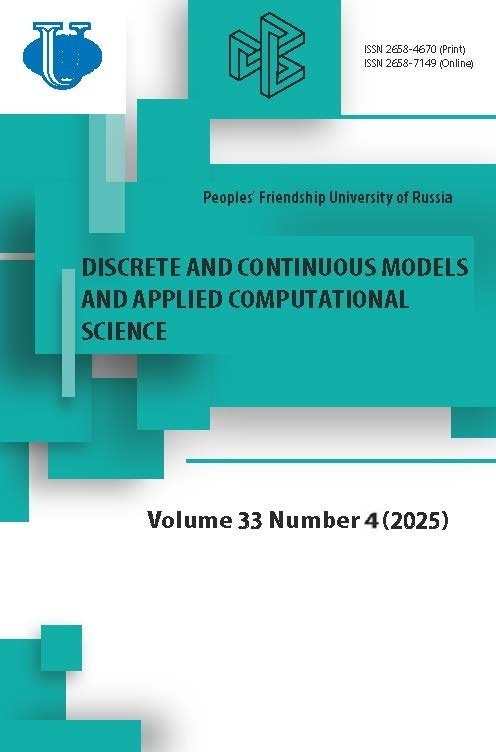Index of Sobolev Problems Associated with Lie Group Action
- Authors: Loshhenova DA1
-
Affiliations:
- Peoples’ Friendship University of Russia
- Issue: No 2 (2015)
- Pages: 11-18
- Section: Articles
- URL: https://journals.rudn.ru/miph/article/view/8267
- ID: 8267
Cite item
Full Text
Abstract
In relative elliptic theory or “Sobolev” problem as B. Yu. Sternin named it in his works one is required to construct a Fredholm elliptic theory and find an index formula in the category of smooth pairs of manifolds (M,X), where X is a submanifold in M. From the point of view of (pseudo)differential equations the Sobolev problem deals with the comparison Du ≡ f(modX), where D is a pseudodifferential operator, while the sign “ ≡” means that the left and right hand sides are equal modulo distributions supported on X. Obviously, if the dimension of the submanifold is greater than one, the comparison written above does not define a Fredholm operator, since its kernel is infinite-dimensional. It turns out, that if we add to the comparison some operators B defined on X, which are related by an algebraic condition (of coercitivity type) with operator D, then the obtained operator (D,B) is already Fredholm in appropriate Sobolev spaces. Remarkably, this condition can be formulated invariantly as an ellipticity condition of some operator, which is induced by the problem on the submanifold X. Hence, the ellipticity conditions of operators D and (D,B) together give us a Fredholm operator. This theorem and the corresponding index formula were proved by B.Yu. Sternin. Note that all operators appearing in this theory are pseudodifferential. In particular, (D,B) is a pseudodifferential operator, meanwhile, this enabled one to define its ellipticity. We have a quite different situation, if the manifold M is endowed with an additional structure, for example, if it carries a Lie group action. In this case, (D,B) is in general no longer a pseudodifferential operator and, hence, the question of its ellipticity, formally speaking, can not even be rised. However, in our work, under certain conditions, we can examine the resulting operator (D,B), define its symbol and prove its Fredholm property. Moreover, we give an index formula in this more general situation. This is the subject of this work.
About the authors
D A Loshhenova
Peoples’ Friendship University of Russia
Email: darya.loshhenova.90@bk.ru
Department of Applied Mathematics
References
Supplementary files















